Did you ever have one of those annoying Facebook messenger bugs that spreads itself to all your friends? You know the ones – they look like a normal message from a friend, tempting you to click a link or watch a video. But then suddenly your Messenger starts spontaneously sending the same message to people in your contacts list. Before you know it, dozens of confused friends are messaging you back asking why you sent them that weird link out of the blue. The good news is, these message-spreading bugs are usually easy to remove once you know the steps. Here’s how to get rid of a Facebook virus in just a few minutes with these easy hacks and avoid having a digital meltdown.
Table of Contents
What Is a Facebook Messenger Virus?
A Facebook messenger virus is malicious software designed to spread on Facebook and infect users’ accounts. Once it enters your account, it can do things like:
- Send automated friend requests, messages, likes and posts without your permission.
- Share links that install malware or steal personal info.
- Tag random people in posts or photos.
How Do You Get Infected?
Usually by clicking an enticing link, downloading a suspicious attachment or accepting a dubious friend request from someone you don’t actually know. The virus then gains access to your account and starts spreading to your friends.
How Do Facebook Viruses Spread?
Facebook viruses spread through messenger when people click infected links or attachments in messages. Once clicked, the virus activates and starts sending itself to the victim’s friends and contacts.
How Do They Work?
These pesky bugs often disguise themselves as photos, videos or greeting cards to trick people into clicking. As soon as you open the infected message, the virus gets to work. It accesses your list of friends and contacts and sends itself to them while appearing to come from you.
The virus then repeats the process with everyone who receives the message, spreading exponentially through networks. Some even post spammy updates or ads on timelines and walls. The key is not to click or open anything in an unsolicited message, no matter how intriguing.
If a message seems off or too good to be true, trust your instincts. Double check with the sender before clicking or opening. While Facebook works to detect and block viruses, the most effective way to stop them is by being vigilant and wary of unprompted messages and links.
Types of Facebook viruses
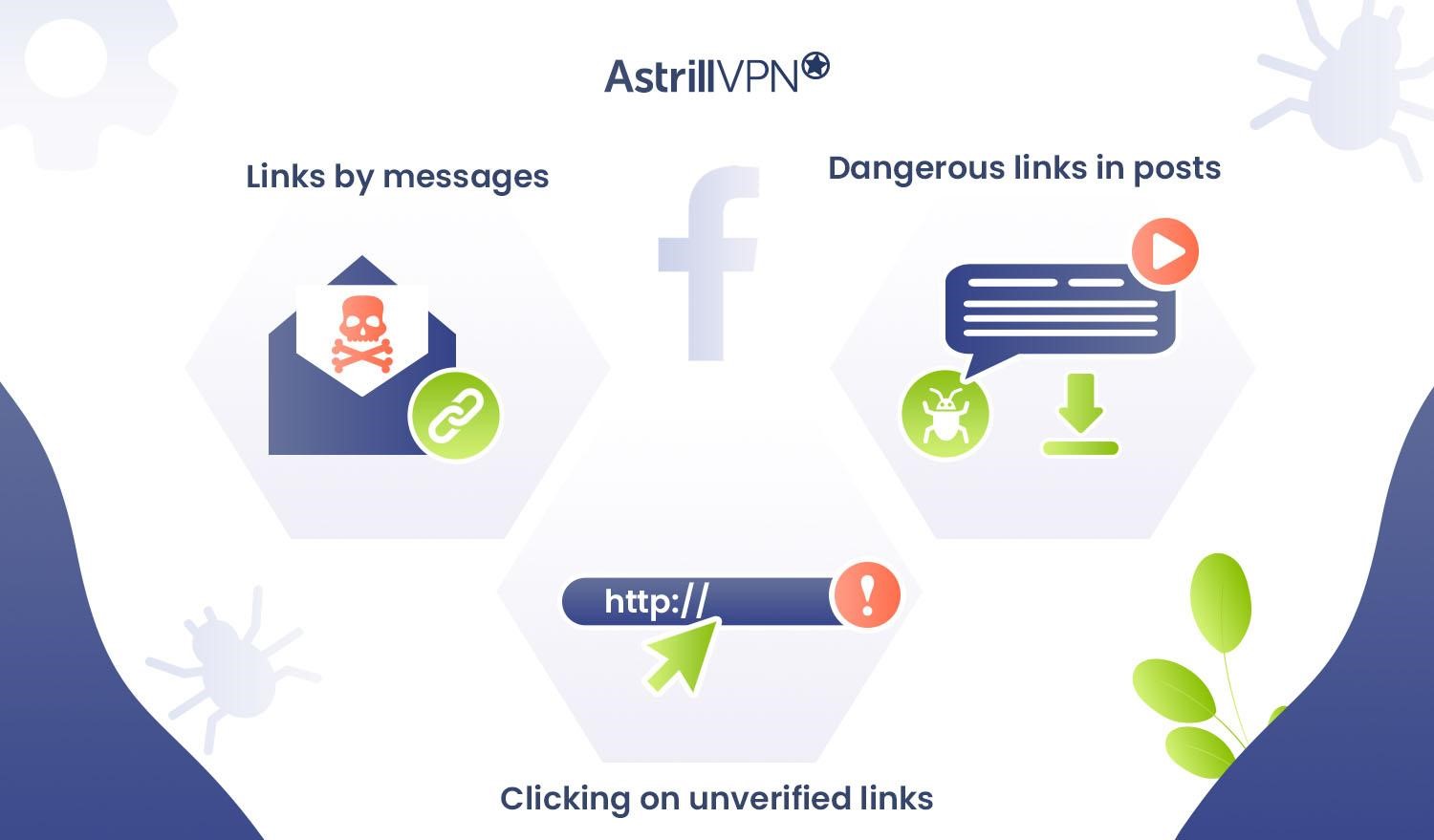
Facebook viruses come in a few common forms designed to spread quickly and cause annoyance.
- Links by messages: The most well-known are message-sending bugs that spread by posting messages on your timeline, sending instant messages to your friends, or sharing rogue posts.
- Dangerous links in posts: These sneaky viruses pose as you to send messages like “Check out this cool video!” or “Is this really you in this photo?” to try and trick others into clicking suspicious links or downloading infected files. They spread by duping people into interacting with the infected messages which then spread to their friends.
- Clicking on unverified links: Be wary of clickbait and be careful what information you share as it could be used to spread viruses posing as you. Keep your security settings high and be suspicious of unverified links, videos or photos as they are often used to spread viruses and malware.
With caution and quick action, you can remove annoying Facebook viruses.
Related Article: Deactivate Messenger: A Step-by-Step Guide for Privacy Control
What Damage Can Facebook Viruses Cause?
Facebook viruses can cause some annoyance and frustration. These pesky bugs spread through messages and posts, tricking you into clicking links or sharing content. Once they infect your account, they can:
- Facebook virus sends messages to all your friends without you knowing. These spam messages often contain suspicious links or ask your friends for money or personal info.
- Post embarrassing updates or spammy content on your timeline that you didn’t actually share.
- Steal your personal information like passwords, credit card numbers or account access. Some viruses contain malicious software designed specifically for cybercrime.
- Slow down or crash your Facebook app or account. In severe cases, the virus may disable your account entirely, though Facebook works to restore access quickly.
The good news is Facebook employs advanced security systems to detect and block most viruses before they spread too far. But some still slip through the cracks, so be vigilant about the messages and links you interact with. If a virus does infect your account, you should report it to Facebook immediately so they can take action.
Indications You Have a Facebook Virus
Have you noticed strange messages being sent from your Facebook account recently? If so, your account may have been compromised by a virus. Here are some signs to look out for:
- Messages being sent to your friends that you did not write. These could include links, posts, or messages that seem out of character for you.
- Your account liking, commenting or sharing posts without your interaction.
- Friend requests being sent to people you don’t know.
- Your profile information like your profile photo, cover photo or bio changing without you updating it.
If any of these occurrences happen and you did not perform the actions yourself, your Facebook account has likely been infected with a virus. The good news is you can take steps to remove the virus and secure your account. You should also report the issue to Facebook directly so they are aware of the virus targeting users.
How to get rid of Facebook Virus?
To remove Facebook virus sending messages from your account, take action right away. The sooner you address it, the less damage it can do.
On Windows
- Open the Control Panel
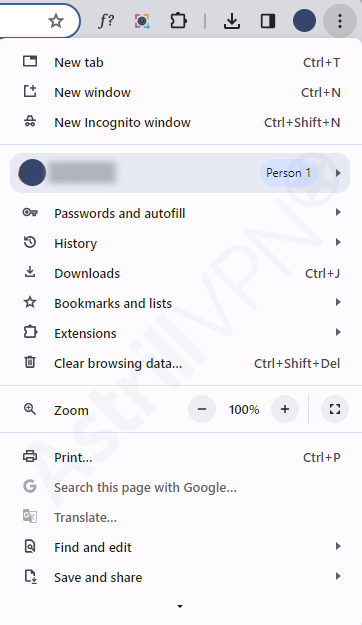
- Uninstall any recently installed browser extensions or plugins you don’t recognize.
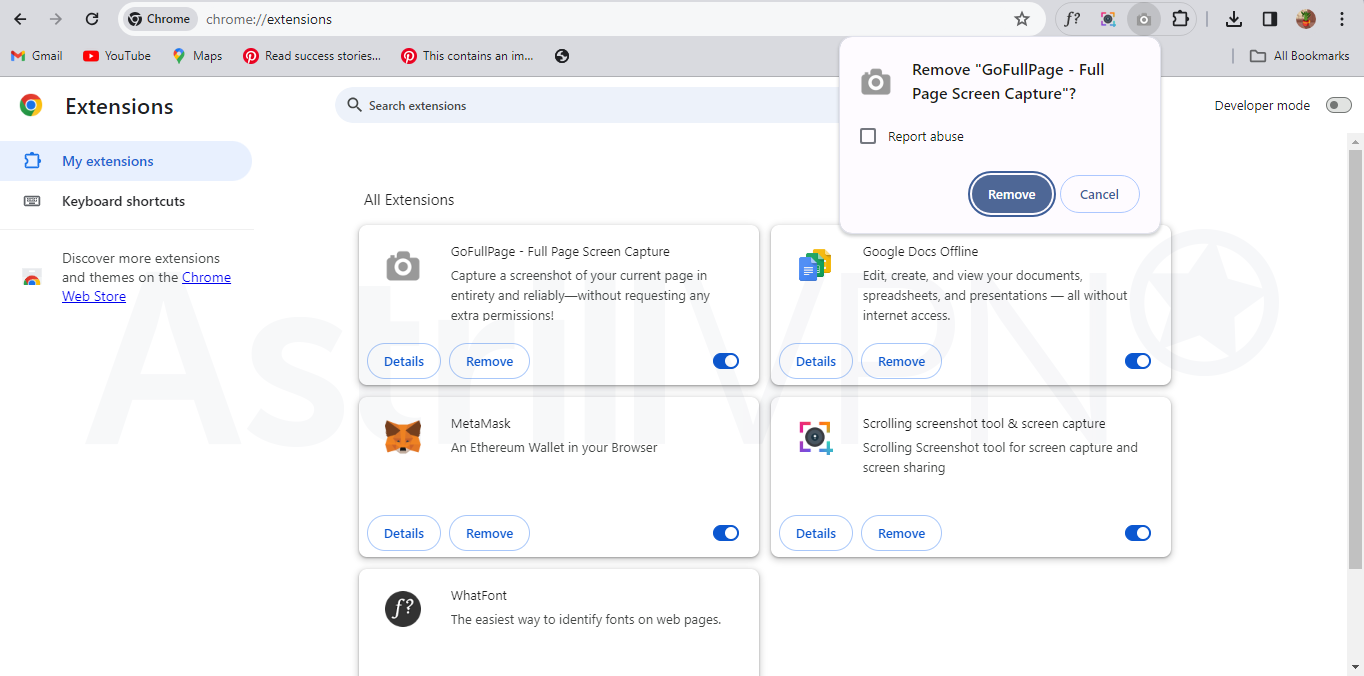
- Run a virus scan using Windows Defender or your antivirus software.
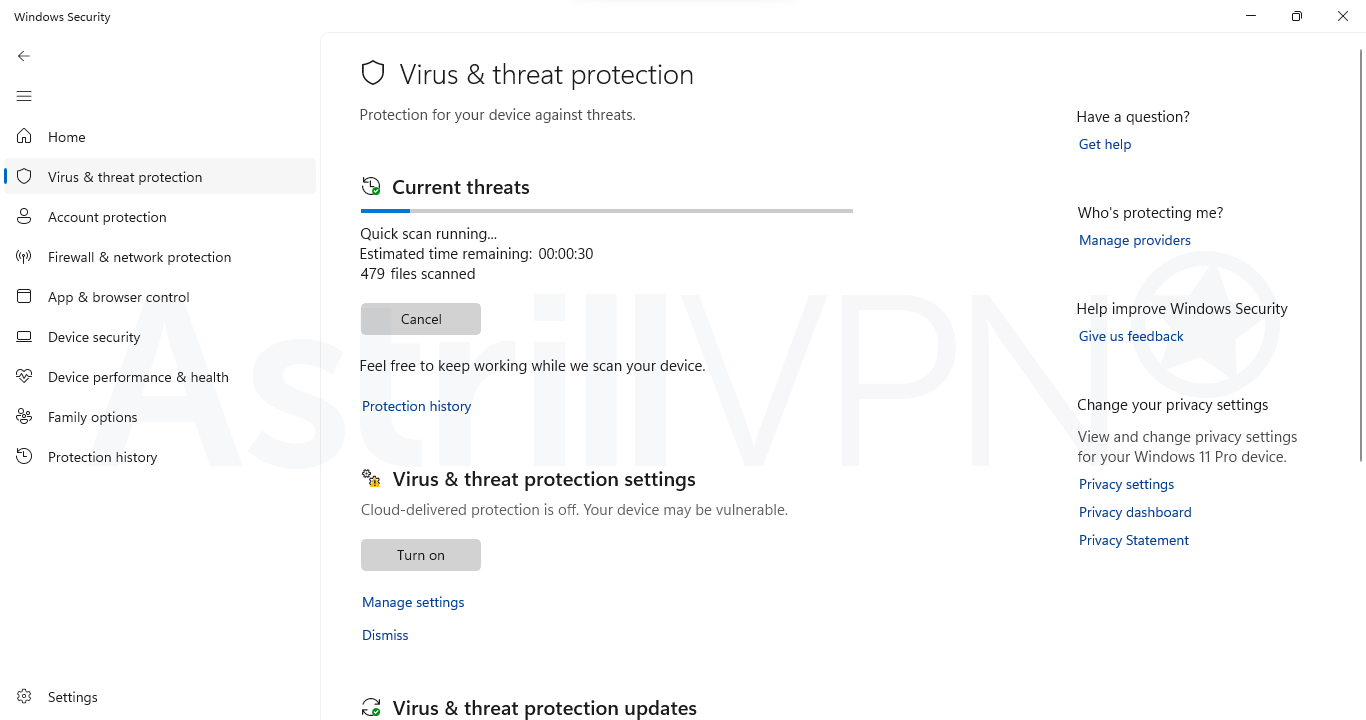
- Remove anything it flags as malicious.
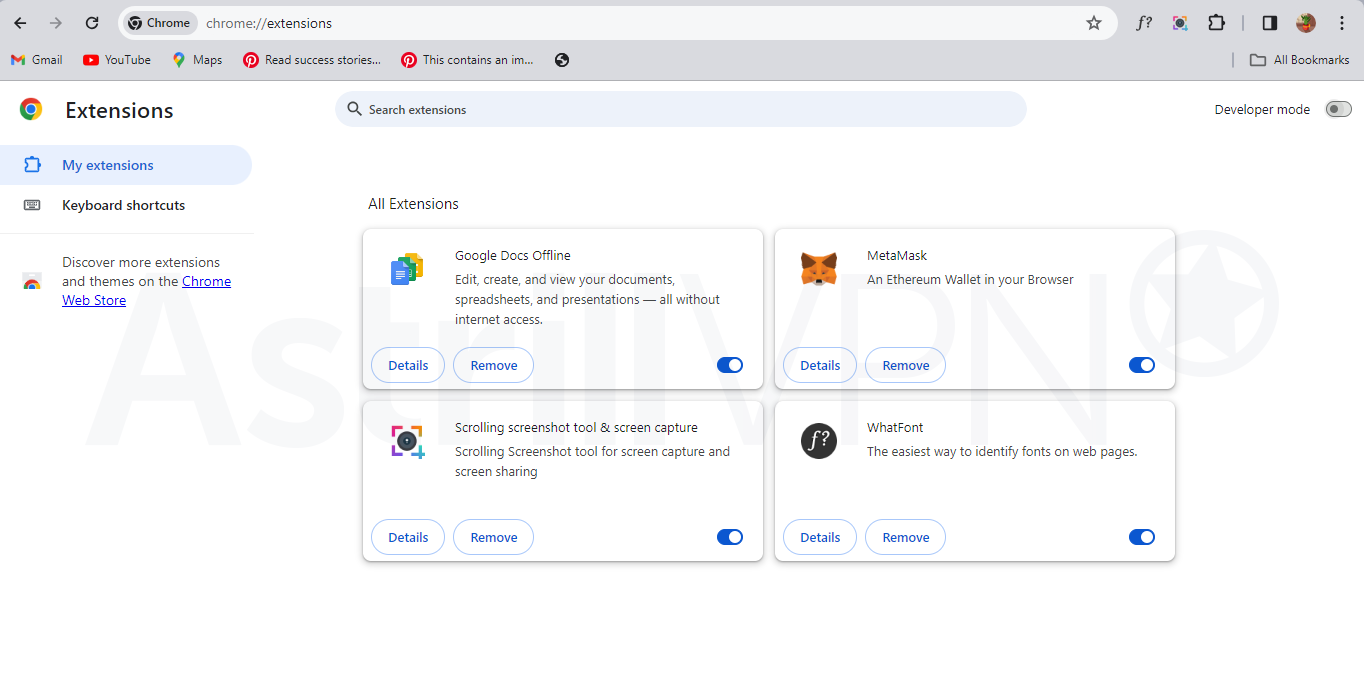
On macOS
- Open Safari preferences
- Delete any new extensions you didn’t install yourself
- Run a scan with the built-in Mac antivirus software or a third-party app like Avast or Malwarebytes.
- Let the scan remove any threats it detects.
Reset Your Browser
Whether using Chrome, Firefox, Edge, or another browser, go to the settings and reset it to factory default. This will remove any rogue extensions, toolbars or other unwanted add-ons. You may need to sign back into websites and re-save passwords, but it’s worth it for security.
Change Your Facebook Password
As an extra precaution, log into Facebook and change your account password immediately. Make it unique and enable two-factor authentication if possible. This helps ensure the virus can no longer access your account.
Preventing Facebook Viruses in the Future
To avoid Facebook viruses in the future, take a few precautions:
Use Strong Passwords
Use a unique, complex password for your Facebook account that includes a minimum of 8 characters, with a mix of letters, numbers and symbols. Don’t reuse the same password across sites. Changing your password every few months is also a good security practice.
Enable Two-Factor Authentication
Turn on two-factor authentication for your Facebook account. This adds an extra layer of security by requiring not just your password to log in, but also a security code sent to your phone. Hackers would need both to access your account.
Be Wary of Unfamiliar Links and Attachments
Don’t click links, download attachments or install apps from unknown or untrusted sources. Only add Facebook friends that you actually know. Be suspicious of messages from friends with links or attachments out of the blue. It could be an imposter.
Update Your Software Regularly
Keep your operating system and software up to date with the latest patches. Updates often contain security fixes to vulnerabilities that could otherwise be exploited. This includes updating web browsers like Chrome or Firefox that you use to access Facebook.
Report Suspicious Messages
If you receive a message that looks like spam or a scam, report it to Facebook. The same goes for friend requests from people you don’t know, as these could be fake profiles. Reporting these issues helps Facebook take appropriate action and better protect all users.
Watch out for “sponsored” posts
Just because something says “sponsored” doesn’t mean it’s legitimate. Malware distributors will try to make their links and posts appear authentic to trick people into clicking. If an offer seems too good to be true, it probably is.
Tell your friends
Educate friends and family members on how to spot and avoid Facebook viruses so they can help protect themselves and each other. By spreading awareness, you’re strengthening the community.
Be skeptical of emotional pleas
Sob stories, urgent requests for money or messages that play on your emotions are often scams. Never send money or gifts to someone you don’t personally know and trust.
How AstrillVPN Protects You from Facebook Viruses?
AstrillVPN protects you from Facebook viruses and malware in several ways:
Encrypted Connection
AstrillVPN encrypts all of your internet traffic and hides your online activities. This makes it much harder for hackers and viruses to access your Facebook account or install malware. When connected to AstrillVPN, your Facebook messages, posts and data are encrypted and anonymous.
No Tracking
Facebook viruses often use tracking technologies to spread between users. AstrillVPN prevents tracking by masking your real IP address and location.
Ad Blocking
Many Facebook viruses are distributed through malicious ads and spam. AstrillVPN’s ad blocker and anti-malware filter will block suspicious ads and links in your Facebook feed and messages. This cuts off a major infection route for viruses.
Secure Wi-Fi
Public Wi-Fi hotspots are a hacker’s paradise and make it easy for viruses to spread. AstrillVPN secures your connection to public Wi-Fi and prevents snoopers from accessing your Facebook account or installing malware.
Using a VPN like Astrill is one of the best ways to avoid Facebook viruses and stay safe on social media. By encrypting your connection, blocking ads and trackers, and hiding your online identity, AstrillVPN puts up strong defenses against viruses, hackers and other threats.
Statistics about Facebook Messenger Virus in 2024
Facebook Messenger has over 1.9 billion monthly active users, so it’s no surprise that hackers target the platform to spread malware and viruses. According to cybersecurity experts, messenger virus attacks are on the rise and expected to increase by over 200% in 2024.
The majority of messenger viruses are spread through phishing links, malicious ads and fake friend requests. Once installed, these bugs can lock you out of your account, steal personal data, send spam messages to your friends, and even take control of your device camera and microphone.
As of 2023, Facebook Messenger has an estimated 1.9 billion monthly active users around the world, making it the most popular messaging app globally. This represents a steady increase of around 50-100 million new users each year for the past few years.
Video calls and group video calls on Messenger have also increased significantly. On average, there are now around 150 million video calls placed on Messenger each day, up from around 100 million per day in 2022. This growth in video communication seems to reflect the continuing trend of people wanting more visual and personal interactions, even as they communicate virtually.
Facebook continues to invest in new features for Messenger, including AI-powered functions like suggested replies, GIFs, and stickers. They also recently released a new feature called “Vanish Mode” that allows messages in a chat to disappear after they are seen or a set amount of time. This is meant to mimic more casual, in-person conversations.
Overall, while Facebook’s core app may be plateauing in terms of user growth, Facebook Messenger remains an extremely popular communication tool, especially among younger demographics. The growth of video communication and new features like Vanish Mode indicate Facebook is focusing on making Messenger feel more like an in-person conversation, rather than just a simple messaging app. With over 1.9 billion users, Facebook Messenger will likely continue to be a major force in online communication for the foreseeable future.
Recent incidents reported related to Facebook Messenger virus
As of 2023, the news has been filled with reports of a new Messenger phishing virus “look who died” that is stealing data from users’ smartphones. In another incident, Facebook Phishing targeted 100k business accounts per week in 2023. While details are still emerging and Facebook has not issued an official statement, here are the major incidents being reported:
- Multiple users have reported suspicious activity after receiving a message on Facebook Messenger. The message claims to contain photos but actually contains malicious code that installs malware on the user’s phone.
- Once installed, the malware reportedly gains full access to the phone, allowing it to steal data like contact lists, photos, messages and location information. In some cases it can even activate the camera and microphone without the user’s knowledge.
- The malware has been dubbed “Messenger Virus” by security researchers because of the way it spreads through Facebook Messenger messages. However, Facebook has not confirmed the existence of such a virus at this time.
- So far, the reports have mainly involved Android users, though some iPhone users have also claimed to be affected. The scale and scope of the issue remains unclear at this stage.
- Security experts advise users to exercise caution with any suspicious messages on Messenger, especially those claiming to contain images or video. As always, avoiding clicking on unknown links is a good security practice.
Hopefully, more details will emerge soon and Facebook will provide guidance to help users protect their data and privacy. In the meantime, being aware of the reports and taking common-sense precautions is advised.
FAQs
Here are some frequently asked questions about detecting and removing them:
Yes, you should regularly scan your Facebook account for signs of infection. Look for messages in your inbox or sent folder that you did not write yourself. Be on alert for links, photos or posts on your timeline that you did not share. Also check for new app permissions you did not approve. If anything looks off, change your Facebook password immediately.
Possibly. Clicking unfamiliar links, especially those from people you don’t know well or trust, can potentially download malware onto your device. The safest approach is not to click any links in unsolicited messages or friend requests. Even links from friends can be risky if their account has been compromised.
If you suspect your Facebook account has been infected:
Change your Facebook password right away. Use a strong, unique password.
Review your recent messages, posts, and app activity. Remove anything suspicious like unknown links, spammy posts or unauthorized app access.
Scan your computer for viruses and malware. Use a reputable antivirus program to check for and remove any infections.
Be cautious of links and messages for a while. Only open links or downloads from trusted sources to avoid reinfection.
Report the issue to Facebook. Let them know your account may have been compromised so they can take appropriate action.
By taking quick action, you can eliminate Facebook viruses and get your account back to good health. Staying vigilant and cautious in the future can help prevent further infections.
Conclusion
If you find yourself with an annoying Facebook virus that’s automatically sending messages to your friends, don’t panic. First, change your Facebook password immediately. Then, check your browser extensions and remove anything suspicious. Clear your browser’s cache and browsing data to get rid of any stored login info. Review your Facebook apps and remove anything unfamiliar. And finally, let your friends know you got hacked so they’re aware of any messages they received. Staying vigilant and taking quick action can help contain these kinds of viruses. With some easy cleanup steps, you’ll be back to sharing vacation photos and status updates in no time.




No comments were posted yet